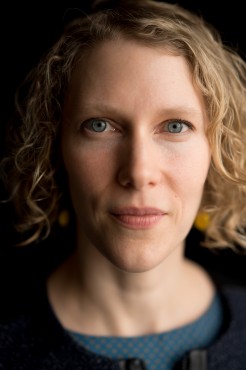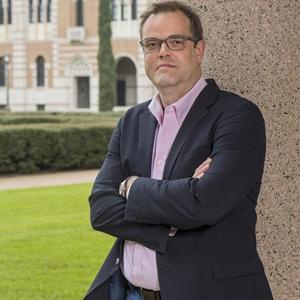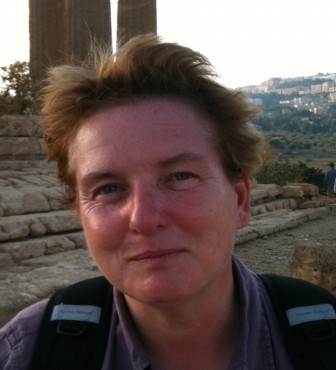 Eugenie Brinkema is Associate Professor of Contemporary Literature and Media at the Massachusetts Institute of Technology in Cambridge, Massachusetts. Her research focuses on violence, affect, sexuality, aesthetics, and ethics in texts ranging from the horror film to gonzo pornography, from structuralist film to the visual and temporal forms of terrorism. Her articles have appeared in the journals Angelaki, Camera Obscura, Criticism, differences, Discourse, film-philosophy, The Journal of Speculative Philosophy, qui parle, and World Picture. Her first book, The Forms of the Affects, was published with Duke University Press in 2014. Her second book, Life-Destroying Diagrams, explores radical formalism’s relationship to horror and love, and will be coming out in November of this year (2021), also with Duke. More information about the new book is available here.
Eugenie Brinkema is Associate Professor of Contemporary Literature and Media at the Massachusetts Institute of Technology in Cambridge, Massachusetts. Her research focuses on violence, affect, sexuality, aesthetics, and ethics in texts ranging from the horror film to gonzo pornography, from structuralist film to the visual and temporal forms of terrorism. Her articles have appeared in the journals Angelaki, Camera Obscura, Criticism, differences, Discourse, film-philosophy, The Journal of Speculative Philosophy, qui parle, and World Picture. Her first book, The Forms of the Affects, was published with Duke University Press in 2014. Her second book, Life-Destroying Diagrams, explores radical formalism’s relationship to horror and love, and will be coming out in November of this year (2021), also with Duke. More information about the new book is available here.
Regarding the topic of the Summer School 2021, her areas of expertise include contemporary art and literature, critical theory and psychoanalysis, cultural studies, embodiment and affect, literary theory, popular culture, film theory, continental philosophy, formalist reading, visual culture and iconography, gender and sexuality studies.
website
__________________________________________________________________________________
 Christian J. Emden is the Frances Moody Newman Professor and professor of German intellectual history and political thought at Rice University. He is the founding director of Rice’s Program in Politics, Law & Social Thought and currently serves as chair of the Department of Modern and Classical Literatures and Cultures.
Christian J. Emden is the Frances Moody Newman Professor and professor of German intellectual history and political thought at Rice University. He is the founding director of Rice’s Program in Politics, Law & Social Thought and currently serves as chair of the Department of Modern and Classical Literatures and Cultures.
Emden’s current work is mainly concerned with varieties of political realism, especially as they focus on the relationship between active political citizenship and the constitutional demands of the modern state. A second line of inquiry is concerned with the emergence of normativity and the conditions of normative order. This approach links discussions in philosophical naturalism and new materialism to central issues in political theory and the history of political thought.
He is currently finishing a longer book project on philosophical nihilism in modern European political thought from the eighteenth century to the present, In a Meaningless World: Philosophical Nihilism and Political Thought, 1750-1960. A second book project, Hannah Arendt, Political Theory, and American Empire, is focused on the writings of Hannah Arendt as a public intellectual in the context of American political life during the 1950s and 1960s.
Emden is one of the chief editors of the journal Nietzsche-Studien and he is also on the editorial board of the Journal of Nietzsche Studies. Previously, he was on the editorial boards of the Zeitschrift für Kulturphilosophie and Modern Intellectual History.
Regarding the topic of the Summer School 2021, his areas of expertise include modern intellectual history, history of life sciences, history of scientific materialism and positivism, European philosophy since 1750, new materialism (critical gaze), genealogy of philosophical naturalism and political realism, theories of subjectivity.
website
__________________________________________________________________________________

Caroline van Eck studied art history at the Ecole du Louvre in Paris, and classics and philosophy at Leiden University. In 1994 she obtained her PhD in aesthetics (cum laude) at the University of Amsterdam. She has taught at the Universities of Amsterdam, Groningen and Leiden, where she was appointed Professor of Art and Architectural History in 2006. She has been a Visiting Fellow at the Warburg Institute and the Paul Mellon Centre for British Art at Yale University, and a Visiting Professor in Ghent, Yale and York. In September 2016 she took up her appointment as Professor of Art History at Cambridge, and in 2017 she gave the Slade Lectures in Oxford on Piranesi’s late candelabra: ‘The Material Presence of Absent Antiquities: Collecting Excessive Objects and the Revival of the Past’.
Her main research interests are art and architectural history and theory of the eighteenth century and early nineteenth century; classical reception; the anthropology of art; Giovanni Battista Piranesi, Gottfried Semper and Aby Warburg.
Recent publications include Classical Rhetoric and the Arts in Early Modern Europe (Cambridge and New York: Cambridge University Press, 2007); Art, Agency and Living Presence. From the Animated Image to the Excessive Object (Munich and Leiden: Walter De Gruyter/Leiden University Press, 2015); ‘Art Works that Refuse to Behave: Agency, Excess and Material Presence in Canova and Manet’, New Literary History, 46 (2015), pp. 409-34; ‘The Hôtel de Beauharnais in Paris: Egypt, Rome, and the dynamics of cultural transformation’, in: K. von Stackelberg and E. Macaulay-Lewis (eds.), Housing the Romans (Oxford: Oxford University Press, 2016);’The Primal Scene of Architecture: Gottfried Semper and Alfred Gell on the Origins of Art, Style and Agency’, Revue Germanique Internationale 26 (2017), and Restoring Antiquity in a Globalizing World: Piranesi’s Late Work and the Genesis of the Empire Style (Munich: DKV, 2019).
In 2014 she received the Prix Descartes-Huygens, awarded by the Académie des Sciences, the Académie des Inscriptions et Belles Lettres in France and the Dutch Royal Academy of Sciences; in 2015 she was made a Chevalier of the Ordre National du Mérite, and in the same year she received the Grand Prix du Rayonnement de la Littérature et Culture Françaises, awarded by the Académie Française. In 2016 she received a honorary doctorate from the University of Neuchâtel. She was elected a Fellow of the Academia Europaea in 2019, and a Fellow of the British Academy in 2020.
Funded by the Cambridge-Paris Sciences Lettres Strategic Partnership Van Eck directs, together with Prof. Isabelle Kalinowski (Ecole Normale Supérieure, Paris) the program ‘Entangled Histories: Archaeology, Interiors and Design 1750-1900. Van Eck and Kalinowski als convene a graduate online seminar, organized together with the Labo Translitterae at the Ecole Normale Supérieure in Paris: KUNST. German Theoretical Approaches to Art (1750-2000).
Regarding the topic of the Summer School 2021, her areas of expertise include art and architectural history (mainly 18th and 19th Century), anthropology of art, organicism in artistic theory and practice, agency, excess and material presence of art works, entangled history.
website




